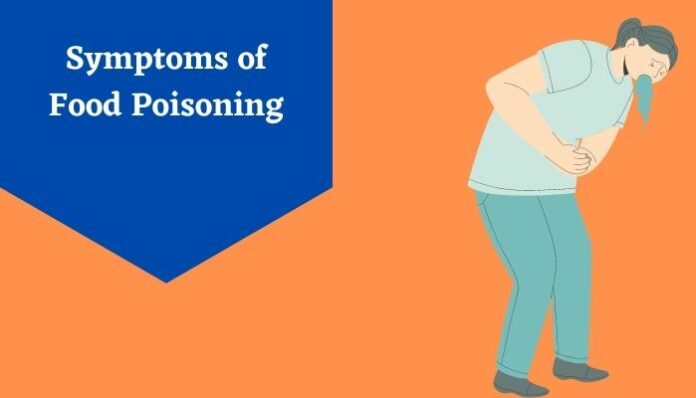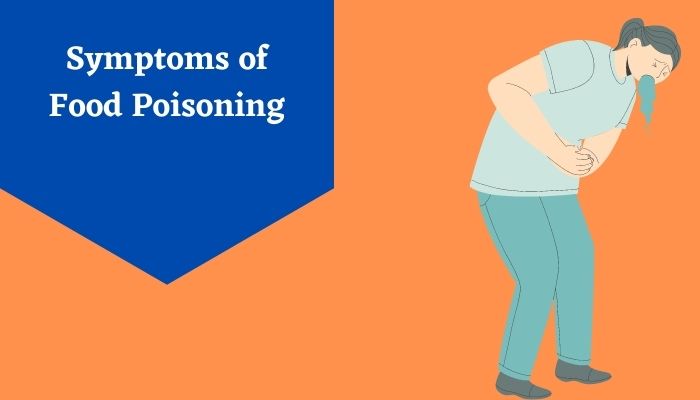Alice goes out with her friend to a sushi restaurant. She has lots of fun chatting with her friends and enjoying delicious sushi. When she wakes up the next morning, she experiences stomach aches and vomiting.
She looks up her symptoms and finds out that she has food poisoning. She calls off work and has to stay in bed, keeping hydrated. The detailed information about food poisoning symptoms are available below:
Define Food poisoning
Foodborne illness, commonly called food poisoning, is caused by eating contaminated, spoiled or toxic food. Most food poisoning can be traced to one of three major causes: bacteria, parasites, or viruses. Food can be contaminated at any point of processing or production by infectious organisms. The food present in homes can also be contaminated if it is not stored or handled properly.The most common symptoms of food poisoning include nausea, vomiting, and diarrhea. In most cases, food poisoning is mild and resolves without medical attention. But there are some cases with harsher symptoms in which you might need to see a doctor.
Symptoms of food poisoning
Most common type of food poisoning includes the following symptoms:Abdominal Cramps
Abdominal pain is discomfort anywhere in your belly — from ribs to pelvis. It’s often called ‘stomach’ pain or a ‘stomach’ ache, although the pain can be coming from any number of internal organs besides your stomach.Diarrhea
Diarrhea causes loose, watery stools and the urgent need to go to the toilet multiple times a day. Diarrhea also causes dehydration.Nausea
Nausea is discomfort of the stomach and the feeling of wanting to throw up. It can be a precursor to vomiting.Vomiting
Vomiting, or throwing up, is a forceful discharge of the contents of the stomach. Frequent vomiting can lead to dehydration, which can be fatal if left untreated.Mild Fever
A fever is the body's way of battling an illness. When your bodies temperature rises above 100°F, you have a fever. Bacterial and viral food poisoning can bring on a fever.Weakness
Weakness in the whole body is a common experience in bacteria and viral infection. It can be described as feeling of body fatigue or tiredness.Headache
Headaches are pain and discomfort in the head, scalp and neck region. They are common symptoms of food poisoning. They can vary between mild and severe cases.Common Food Poisoning Germs and their symptoms
Different pathogens are responsible for foodborn illnesses. Some germs can make you sick within a few hours while some may take a few days. Here is a list of Common germs, their food sources and the symptoms they cause.| Name | Food Sources | Symptoms |
| Staphylococcus aureus (Staph) | Foods that are not cooked after handling, such as sliced meats, puddings, pastries, and sandwiches | Nausea, vomiting, stomach cramps. Most people also have diarrhea. |
| Vibrio | Raw or undercooked shellfish, particularly oysters | Watery diarrhea, nausea, stomach cramps, vomiting, fever, chills |
| Clostridium perfringens | Beef or poultry, especially large roasts; gravies; dried or precooked foods | Diarrhea, stomach cramps. Usually begins suddenly and lasts for less than 24 hours. Vomiting and fever are not common. |
| Salmonella | Raw or undercooked chicken, turkey, and meat; eggs; unpasteurized (raw) milk and juice; raw fruits and vegetables | Diarrhea, fever, stomach cramps, vomiting |
| Norovirus | Leafy greens, fresh fruits, shellfish (such as oysters), or unsafe water
Other sources: Infected person; touching surfaces that have the virus on them |
Diarrhea, nausea/stomach pain, vomiting |
| Clostridium botulinum (Botulism) | Improperly canned or fermented foods, usually homemade. Prison-made illicit alcohol (pruno) | Double or blurred vision, drooping eyelids, slurred speech. Difficulty swallowing and breathing, dry mouth. Muscle weakness and paralysis. Symptoms start in the head and move down as the illness gets worse. |
| Campylobacter | Raw or undercooked poultry, raw (unpasteurized) milk, and contaminated water | Diarrhea (often bloody), stomach cramps/pain, fever |
| E. coli (Escherichia coli) | Raw or undercooked ground beef, raw (unpasteurized) milk and juice, raw vegetables (such as lettuce), raw sprouts, unsafe water | Severe stomach cramps, diarrhea (often bloody), and vomiting. Around 5–10% of people diagnosed with E. coli develop a life-threatening health problem. |
| Cyclospora | Raw fruits or vegetables and herbs | Watery diarrhea, loss of appetite, and weight loss. Stomach cramps/pain, bloating, increased gas, nausea, and fatigue. |
| Listeria | Queso fresco and other soft cheeses, raw sprouts, melons, hot dogs, pâtés, deli meats, smoked seafood, and raw (unpasteurized) milk | Pregnant women usually have a fever and other flu-like symptoms, such as fatigue and muscle aches. Infections during pregnancy can lead to serious illness or even death in newborns.
Older people (most often older adults): headache, stiff neck, confusion, loss of balance, and convulsions in addition to fever and muscle aches |
Symptoms of potentially life-threatening food poisoning include:
- diarrhea that lasts for more than 3 days
- a fever higher than 102°F (38.9°C)
- difficulty seeing or speaking
- symptoms of severe dehydration, which may include dry mouth, passing little to no urine, and difficulty keeping fluids down
- bloody urine
Conclusion
Food poisoning is a common but uncomfortable illness. It is extremely rare for food poisoning to be life threatening.
While most types of food poisoning get relieved in a few days if you are experiencing severe symptoms, it is advised to go and see a doctor. To prevent food poisoning it is important to cook and store food properly. If you or someone in your family gets food poisoning, get rest, take recommended medicines ,eat bland foods and stay hydrated.



